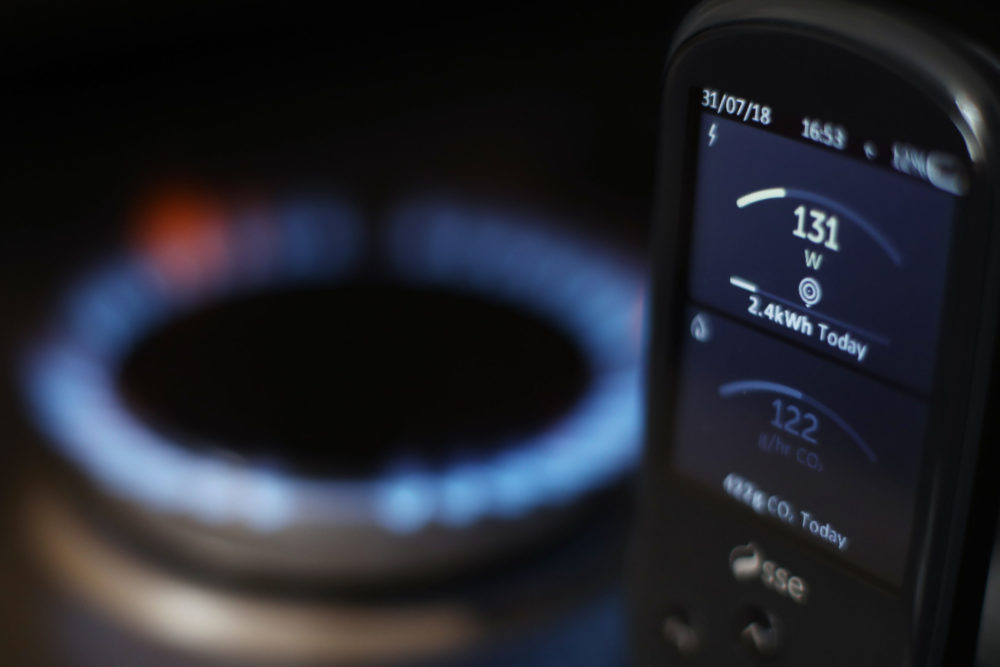Energy firms to offer ‘zero standing charge’ tariffs under Ofgem plans

Energy firms will have to offer household tariffs free of standing charges as an alternative to existing ones under plans by regulator Ofgem.
The regulator wants suppliers to have to offer “zero standing charge” tariffs alongside other tariffs by next winter as part of plans to address ballooning household energy debt.
It is also proposing new standards for suppliers to make it easier for customers who are struggling to pay their bills to get support.
Since October 1, households on a standard variable tariff that pay for their electricity by direct debit have paid on average 24.5p per unit, with a standing charge of 60.99p per day. For gas, the average has been 6.24p per unit with a standing charge of 31.66p per day.
Standing charges
From January 1, average standing charges will decrease slightly to 60.97p per day for electricity and 31.65p per day for gas.
Standing charges pay for the fixed costs to suppliers of providing energy to homes.
Some suppliers already offer low or no standing charge tariffs, which are at least 10% below the price cap, but they are not universal.
However, while these tariffs come with a lower standing charge, they do have a higher unit rate, and are therefore more likely to benefit customers who use less energy.
Ofgem said tens of thousands of consumers responded to its call for input on standing charges, with many asking for them to be removed altogether, saying that this would make it easier for them to manage their bills or pay back debt.
Health reasons
However, those who were high users of energy, often for medical and health reasons, would see their bills rise significantly, meaning it was important for households to retain a choice of tariff.
Ofgem also set out plans for a “debt guarantee” to improve the standard of service offered by suppliers supporting customers in debt, which it said would give households “consistent, compassionate and tailored support”.
Suppliers could also be required to accept debt repayment offers from reputable third parties such as debt advice agencies or consumer organisations.
It also warned that the level of debt built up during the energy crisis had become “unsustainable”, saying it required a “bespoke, one-off solution to tackle it that will drive down the costs of debt in the long term for the benefit of all consumers”.
Energy debt and arrears have continued to grow, reaching £3.82 billion in September – a 91% or £1.82 billion increase in two years.
Debt
Tim Jarvis, director general of markets at Ofgem, said: “We know that many households continue to struggle with bills after the events of the energy crisis, which is why earlier this year, we took steps to consider all the issues around affordability and debt – including the impact of the standing charge.
“Today we’re setting out the next steps in what Ofgem can do to meet these challenges, as part of our work to make sure the energy market is working in consumers’ interests.
“Many people feel very strongly that standing charges are unfair and prevent them from being able to manage their bills effectively.
“We want to give consumers the ability to make the choice that’s right for them without putting any one group of consumers at a disadvantage. And by having a zero standing charge tariff, we would create that choice for everyone.”
Advice service National Debtline said energy debt is the second-most common debt among people it helps – behind credit cards – with the average amount owed in energy arrears increasing by 37% in the past year to £1,541.
Support our Nation today
For the price of a cup of coffee a month you can help us create an independent, not-for-profit, national news service for the people of Wales, by the people of Wales.





There is no way energy companies/suppliers will ever scrap standing charges. They may appear to be doing so but my guess is they will absorb the charge into the cost per unit. In other words they will probably see it as an opportunity to charge us even more.
Just another round of posturing as they shuffle around and pick their customers’ pockets. Quite brazen about it too.